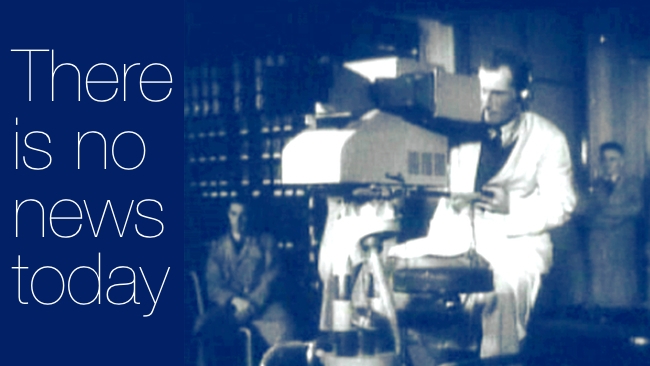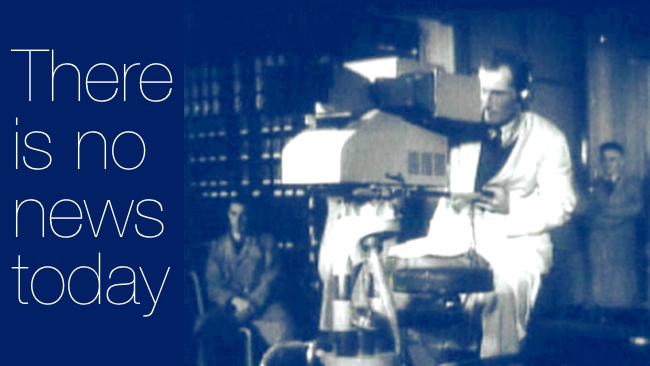
 No news today
No news today
These days it's hard to imagine what it was like before 24 hour news channels, and if you've never worked for one, it probably doesn't occur to you that, sometimes, there's a shortage of good stories
But in the early days of BBC television news broadcasting, when the art and craft of television news gathering was in its infancy, there was no messing around. If there was no news, you just played the piano instead.
Here's an extract from the BBC's own site where they talk about the day that the news dried up.
By 1930, the BBC was beginning to throw off the shackles of the news agencies.
Reuters and the like were still supplying most of the raw material but the BBC was now taking the lead in the selection and editing of stories for its bulletins. This was made possible following the installation of a full service of news agency tape machines in the newsroom at Savoy Hill.
The editorial staff was doubled - and soon found its hands full.
In addition to the output of the tape machines, information began pouring in, too, from the various arms of government. This was largely in the form of official announcements - such as advice to post early for Christmas, and warnings about heavy traffic. Eventually, the bulletins became so cluttered with these "official notices" that a separate slot had to be created for some of them - leaving the news staff to concentrate on the real news.
But there were indications at the same time of a readiness at government level to try to exploit the real news. In 1930, for example, on the evening before Good Friday, the Home Office was desperate to deny a newspaper account of an interview with the home secretary. It was aware that no newspapers would be published over Easter so it contacted the BBC - to ensure the denial was included in the evening radio news.
Within 24 hours, however, it seems the flood of news - official or otherwise - had dried up. Listeners who tuned in to hear the bulletin on Good Friday itself were informed: "There is no news." Piano music followed.
Visit the website for more like this here
Tags: Studio & Broadcast


Comments